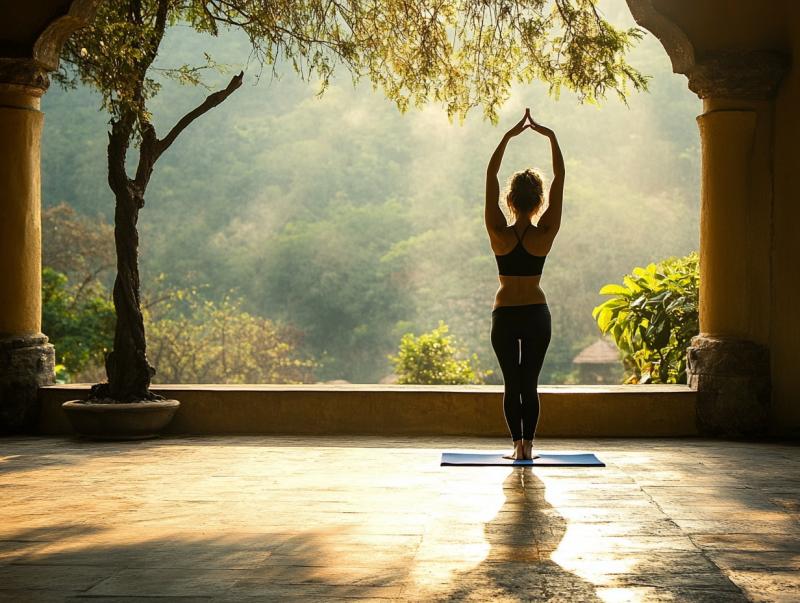Proteins are vital for bodily functions, with eggs being a popular source. Nutritionist Ravneet Bhartwal shared a list of 20 vegetarian foods surpassing an egg’s protein content per 100g, including tofu, paneer, and soy chunks. Combining dal with roti or rice with legumes creates a complete protein source, essential for vegetarians.
Proteins are important nutrients, and they are needed for building, repairing, and maintaining the tissues in our body. And so, every cell in our body– from muscles to skin and even hair– contains protein. It also supports the immune system, helps in hormone production, and carries oxygen in the blood. Thus, having enough protein in our meals is important for the proper functioning of our bodies.
Those looking for weight loss or low-carb diets also prefer having more protein in their diet, as it helps in keeping you full for longer durations and supports metabolism. Whether you’re physically active or not, your body needs protein daily to function properly.
It is often believed that eggs are one of the best sources of proteins, especially for eggitarians. One egg has roughly 6 grams of protein along with other important nutrients like Vitamins A, D, E, B12, folate, iron, selenium, and choline. But, what about people who are vegetarians or those who don’t prefer to have them? What are some other vegetarian protein-rich foods for them? Touching upon this topic, nutritionist Ravneet Bhartwal recently shared a list of 20 vegetarian foods which have more protein than 1 egg on social media.
Apart from protein, these foods are also packed with other nurtients and health benefits. Checkout her complete list here:
“Top 20 Veg Protein Sources (per 100g)
1. Tofu – ~10g | Versatile & easy to cook
2. Paneer – ~14g | Homemade = best quality
3. Greek Yogurt – ~10g | Protein + probiotics
4. Soy Chunks – ~52g | Protein bomb!
5. Quinoa – ~14g | A complete protein
6. Amaranth – ~13g | Gluten-free & mineral-rich
7. Edamame – ~11g | Great in stir-fries
8. Tempeh – ~19g | Fermented & gut-friendly
9. Moong Dal – ~9g | Light & digestible
10. Chana Dal – ~9g | Great in cheelas/soups
11. Black Beans – ~9g | Full of fiber
12. Kidney Beans – ~9g | Meal bowl staple
13. Peanuts – ~25g | Snack or chutney-ready
14. Almonds – ~21g | Powerful in small portions
15. Pistachios – ~20g | Protein + fiber combo
16. Flax Seeds – ~18g | Add to oats or curd
17. Chia Seeds – ~17g | Perfect for pudding
18. Pumpkin Seeds – ~19g | Super nutritious
19. Sunflower Seeds – ~21g | Sprinkle on salad
20. Hemp Seeds – ~32g | Truly underrated”
Those looking of a desi quick fix for protein, the nutritionist also shared a pro tip that read, “Combine dal + roti or rice + legumes for a complete protein meal”. The combination of dal with roti or rice with legumes creates a complete protein because each food provides amino acids the other lacks. Cereals like rice and wheat are low in lysine but high in methionine, while legumes like dal are rich in lysine but low in methionine. When eaten together, they complement each other, supplying all nine essential amino acids required by the body. This makes the meal nutritionally balanced and a great protein source, especially for vegetarians and vegans.
How much protein should an adult consume daily?
The recommended daily protein intake for a healthy adult is 0.8 grams per kilogram of body weight, according to a report in the Harvard Health Publishing (online) by Harvard Medical School. And so, a person weighing 75 kilos needs around 60 g of protein daily, while a 65 kg adult requires roughly 52 grams of protein daily.
However, this is a baseline. People who have an active lifestyle or those recovering from injury often require higher amounts of protein in their daily diet— around 1.2 to 1.6 g/kg. However, one should consult their doctor before deciding how much protein they should consume– especially if they have any underlying health issues.



